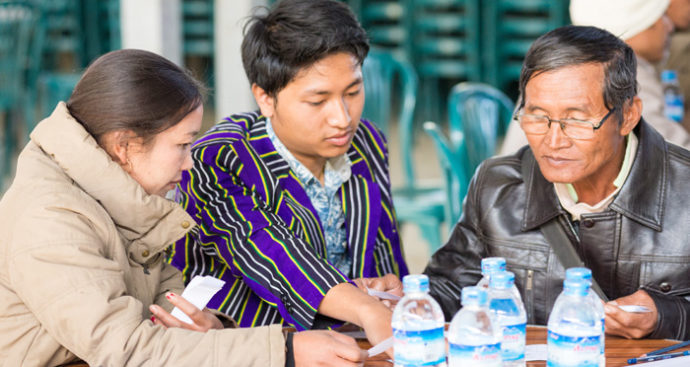25
2016
How do we influence people and change attitudes? This is one of the core questions we ask when we are engaging Government officials and communities around development issues.
From the 25 to 27 April Myanmar Institute for Integrated Development (MIID) participated in the training workshop on “Story of Change” at the Oxfam Offices in Phnom Penh, Cambodia. This workshop was a follow up activity to the “story of change workshop or The Most Significant Change (MSC) Methodology” conducted in January 2016. Each of the Oxfam partners, including MIID collected a story through open dialogue and engagement with the communities from the Mekong Region. The story that MIID collected was about how a junior Government official learnt new ways to engage with communities. In March 2016 the government official was invited to participate in a baseline assessment field trip to have meeting with the communities along the Thanlwin and Ayeyarwaddy rivers. He held discussions with the villagers and found that villagers were very relaxed and openly expressed their difficulties and feelings because the meeting was not held in the Government office. He learnt that there is a coordination gap between communities and government. Communities were reluctant to identify their difficulties and challenges to government since they had not had this chance before. The Government official interviewed for his story of change said that the believed that this field trip created a chance to build better relationships between the communities and the Government.
This activity and story gathering is part of Participatory River Management project, funded by Oxfam which focuses on building a common understanding of significant changes and issues on the major rivers and promoting women leadership and involvement of the communities in decision making and water resources management of the Ayeyarwaddy and Thanlwin Rivers.How do we influence people and change attitudes? This is one of the core questions we ask when we are engaging Government officials and communities around development issues.

